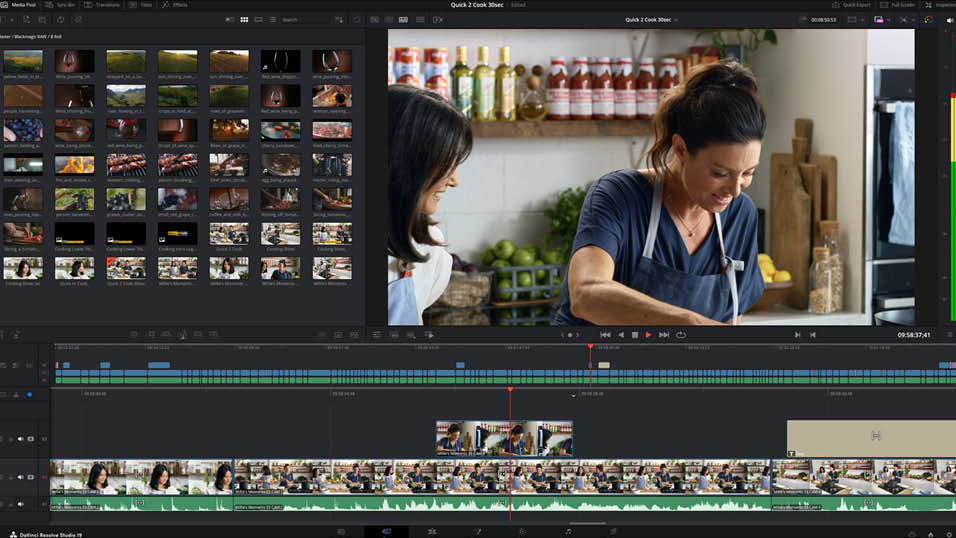The UK Screen Alliance, the trade body that represents Post-Production, VFX, TV & Film Studios and Animation in the UK, has argued that the growth of the UK VFX market is being stymied by current tax relief rules.
UK Screen Alliance is calling for change as the BFI’s latest Screen Business Report is published today.
The UK’s VFX industry showed steady growth over the period analysed by the BFI’s Screen Business report but when combined with other evidence, the UK Screen Alliance says a “picture emerges of a strong opportunity that is not being fully realised due to the structure of the tax incentives.”
The growth in spending of the whole UK VFX sector was 24% over the years 2016 to 2019 with most of that growth occurring in 2017 (15%) . UK Screen Alliance says these figures should be compared to the growth of VFX spending in competitor territories such as Quebec, which grew by 124% over the same period. In 2018, spending in Quebec grew by 88% in a single year, compared to just 3% growth in the same year in the UK and “this implies an erosion of the UK’s global market share for VFX despite the growth shown in the Screen Business report.”
Productions can claim 25% tax relief on their UK spending via the FTR, HETR, ATR or CTR incentives. However, the relief is capped once a production has spent 80% of its budget in the UK. Any UK spending beyond 80% receives 0% relief. Often this impacts the VFX spending in the UK, a part of the production process which is easily transferred to another territory, where further tax incentives can be claimed. Estimates suggests that over £300 million per year of VFX work is performed outside the UK on productions that have filmed in the UK and claimed UK tax credits.
Neil Hatton, CEO of UK Screen Alliance said, “The 80% cap is written into UK law, but this was to comply with EU regulations to which the UK is no longer bound since Brexit. The cap has never made any sense and disincentivises productions from remaining in the UK for VFX work if they have also filmed here. The UK government should now legislate to neutralise the effect of the cap, which is holding back the UK’s VFX industry from achieving its full potential, when the global market for VFX is presenting such a huge opportunity for economic growth, innovation and the creation of highly skilled, highly productive jobs in the UK.”
William Sargent, CEO of Framestore said, “This is an important report at a key time for the UK. It outlines the major opportunity for new jobs and a larger share of the world spend on content. I hope it is used to drive government policy.”
Lucy Ainsworth Taylor, CEO of Bluebolt said, “The BFI Screen report shows a healthy steady growth in our industry, one which is continuing to grow at a rapid pace. Now is an ideal time to revisit the cap on the UK spend, especially with regards to VFX.”
Rachael Penfold, Director at One of Us said, “The report shows the huge benefit of the tax relief to the UK economy, it’s clearly working well. But even when a thing works well, it can and should be improved. The VFX sector, which has been identified as an important element of the UK film industry, is the part of the process that suffers most from the cap. Removal of the cap is a huge missed opportunity. It would prevent the export of large quantities of work overseas. A government which promoted Brexit as a boon to our economy should not retain this throwback to the pre-Brexit era. We should be giving UK based VFX companies the ability to compete on price as well as talent to win and retain this work. The boost to the VFX sector would bring growth, investment and importantly retain skills that are being exported. It would create new jobs in an area of the film industry that is perhaps more accessible than many others”.
Tim Caplan, founder of Union VFX said, “It’s a very global marketplace and, post-Brexit, new hubs with good incentives are popping up in Europe to add to the competition. There is a huge opportunity to maintain and grow the UK industry further if we can remain attractive by creating the right conditions for inward investment to continue. If we grow, nurture and support the next generation of talent we are well positioned to continue this trend and remain a world leading hub for VFX.”
Jon Creamer
Share this story

















